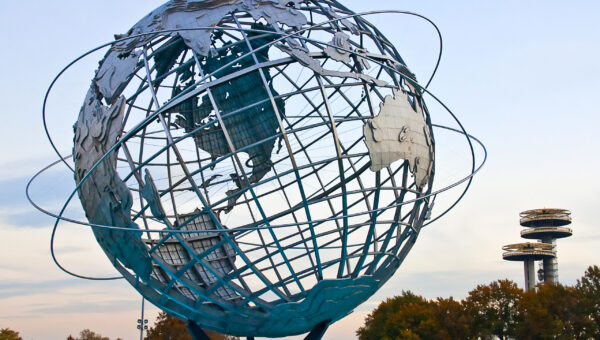
Can the Latest Climate News Catalyze a More Sustainable Future? Capalino Says Yes!

On August 9, the Intergovernmental Panel on Climate Change (IPCC) released its strongest statement yet that human-generated changes in the Earth’s climate are happening in every region and across the whole climate system. The IPCC found that the world has already warmed about 2 degrees Fahrenheit (approximately 1.1 degrees Celsius), and concluded that this warming will continue until at least midcentury. According to the IPCC, some of the changes that have been observed have not been seen in thousands, hundreds of thousands, and even millions of years.
On the positive side, the report found that there is still a narrow window to avoid the worst impacts of climate change. More to the point, accelerating the reduction of carbon dioxide (CO2), methane, and other greenhouse gases this decade and reaching “net zero” emissions by 2050 would limit climate change to what’s already baked into the system. Improvements to air quality and human health would come quickly, especially in the low-income communities and communities of color that live with disproportionately high levels of diesel and other pollution. And, global temperatures could stabilize within two or three decades of reaching “net zero” emissions to roughly the 1.5 degrees Celsius goal of the Paris Climate Accord.
How do we get there?
As Albert Einstein famously said, “we cannot solve our problems with the same thinking we used when we created them.”
First and foremost, we need ambitious, fuel-neutral, technology-agnostic performance standards that send a clear signal to the nation’s investors, and that reward innovators who are seeing beyond today’s status quo technologies. The history of our environmental policy-making is that government policy works best when it sets clear, enforceable standards, and then enables innovators to come up with the safest, most cost-effective solutions that meet those standards. Picking a single technology winner ahead of time rarely yields the safest, most cost-effective, and best solutions.
Second, we need to take steps to enable all possible low-carbon, zero-carbon, and carbon-negative solutions to scale, as soon as possible. Companies like CarbonQuest are figuring out how to decarbonize buildings that will still burn natural gas for years to come; CarbonCure and Neste are decarbonizing concrete and diesel fuel, respectively; BYD is accelerating the push to electric transit and school buses. And in Long Island City, Rise Light and Power has submitted a plan to NYSERDA to transform its Ravenswood site into a transmission hub of reliable, resilient, and renewable energy generated upstate for New York City’s electricity consumers. The incoming Hochul administration, and the next New York City Mayor, need to take steps to make sure that our State and City policy frameworks help innovation succeed at scale, and quickly.
Am I optimistic? Yes! Looking at the incredible array of clean energy, sustainable transportation, and other decarbonization technologies being developed, the dizzying number of startup companies being funded at record levels, the massive investments by legacy companies into new ways of operating, and the low-carbon projects being deployed in every sector of society makes me optimistic that there’s enough new thinking out there to reach our goals.
Capalino is working with leading companies in the clean energy, sustainable transportation, and other decarbonization sectors to help them succeed in New York. For more information on how Capalino can work with your business, please contact Rich Kassel at rkassel@nullcapalino.com or 917.838.0865.


